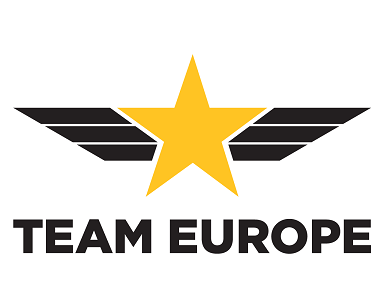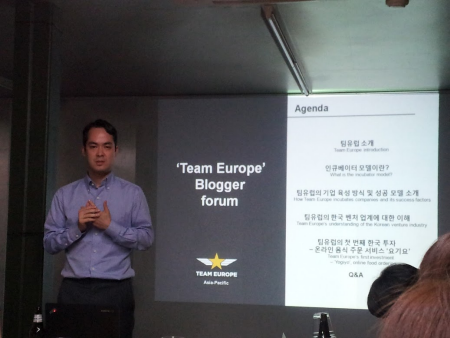
The international incubator Team Europe has been in South Korea for just over six months now and with two projects well underway, the firm is gearing up to make more announcements in the near future. I recently sat down with Ludolf Ebner-Chung, Venture Partner for Team Europe and General Manager for the Asia-Pacific branch of Hitfox Ventures to recap on the year’s developments.
Team Europe’s food delivery service “Yogiyo” was launched in Korea in July, led by Ebner-Chung as CEO until October when chief development officer Na Ji-won took over the position. Ebner-Chung says that Team Europe venture partners such as himself will often leave a company once it is doing well, but they are also free to stay on if they like. In August Team Europe raised 40 million Euros alone to expand the “Delivery Hero” business model internationally and also bought the Russian Company Foodik.
“I left Yogiyo because it was rather stable and what we planned went very well. There is a bit of competition here and there but overall I think it was a good start for both Delivery Hero and Team Europe. I also think that culture-wise it was a bit tougher than an average startup for some employees, with very high goals. But we still had a lot of fun and people really enjoy working there.”
Hitfox to Target Korean Game Companies
Last month, Team Europe announced that Berlin-based games distributing and marketing company Hitfox would be coming to South Korea. Ebner-Chung himself brings valued experience to the table, having a gaming background as an ex-employee of Korean gaming giant NCsoft.
“In major Korean game companies they develop, publish, distribute and market the games themselves. In Europe these are all separate steps, for example there are all different types of media channels, distribution and marketing.”
Hitfox’s main customers in Korea will be major Korean game companies and will seek to help them reach a more international market. Team Europe hopes that through this B2B model, the incubator will also be able to expand its network further, having already made waves in the consumer and investment areas with Yogiyo.
 A More Focused Global Incubator
A More Focused Global IncubatorWhile some global incubators have been getting bad press, Team Europe tries to differentiate itself from others by making sure business decisions are accurate and focused, as opposed to churning out numerous business models in a local market and hoping that a couple do well.
“I think the approach is really different. My experience is that you take one company and go deep, reducing the risk while learning. So far this approach has worked well with Team Europe and it’s the same approach in Germany, the rest of Europe and here in Korea.”
Ebner-Chung says that many are unclear about what an incubator actually is and emphasized that Team Europe focuses on finding a “value denial” in the market, where the customer is denied something of value.
“Other incubators or accelerators help set up the right model until they know it works. After that it’s Team Europe time, and we take that idea and make it big by carrying out fast aggressive scaling and marketing.”
While Team Europe hadn’t originally planned to open any more companies this year, Ebner-Chung said that there were possible plans for two more companies, but remained tight-lipped on the details.
“We have two upcoming models, with one that may be an entirely local model not imported from Germany. One will be another B2C model, and the other may be a combination B2C and B2B model.”
Korea Needs Role Models
During his time in Korea, Ebner-Chung says that he has felt a reluctance to sell companies by entrepreneurs, whereas many in the US would build something and then sell it.
“In Korea there still seems to be a sense of patriarchy, where the CEO will control the company and employees, but also feels responsible for them. I wonder if this is the best thing, because it’s nobody’s fault if a few years later there is a new technology which takes out the whole industry.
He added that the startup industry also needs role models like Daniel Shin (Ticket Monster CEO) and Kim Beom-soo (KakaoTalk founder) to encourage young people to think about starting their own companies, rather than just trying to find jobs at conglomerates.
“I think if you had ten people like Shin and Kim, others would think that they could do the same. Successful entrepreneurs from the previous generation of ventures in Korea are very quiet. In the US, many who are successful will invest after a couple of years or found a new company, but here when I interview candidates I can’t say, ‘Hey you could be the next Bill Gates!’. I think if people had a role model they could relate to then they would have more confidence.”
Visit Team Europe’s international website here and check out Yogiyo here.